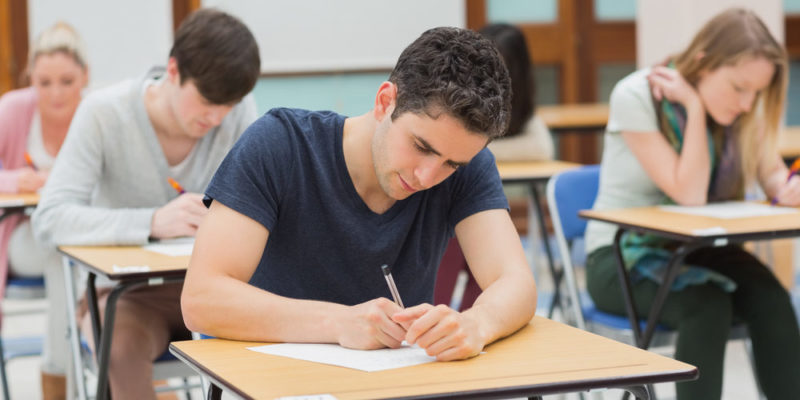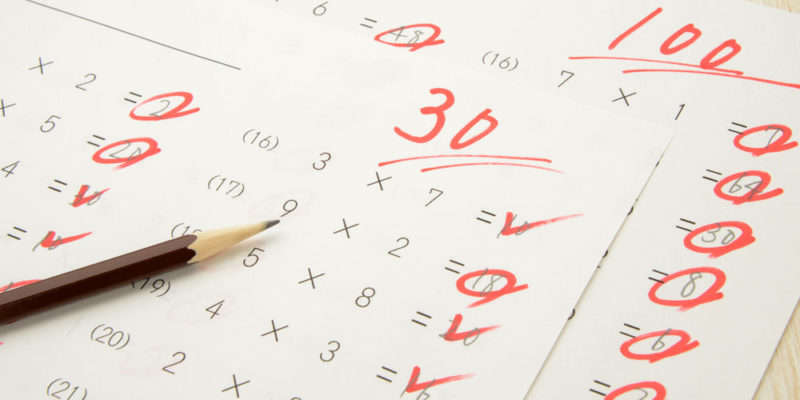We explain what evaluation is and how it is classified. In addition, what are its main characteristics and the objectives for which it is carried out.
What is an Evaluation?
The evaluation can be conceived as a dynamic process, which aims to analyze behaviors, attitudes, performances and achievements related to a series of objectives set a priori.
The word evaluation is applied in many areas and orders of life . As a thinking and reflective subject, one evaluates almost all the time the convenience of performing certain acts (buying this or that product; going out with an umbrella; taking the subway or the bus; etc.), and also evaluates one's own behaviors and of the others . In the school environment, the word evaluation is generally used as a synonym for exam.
We will approach this characterization by comparing the traditional school evaluation (or "test") with what is now called "educational evaluation", which is a broader concept.
Characteristics of the traditional evaluation

- The parameters are established by the professor or teacher , and do not always conform to academic criteria or clear objectives
- The performance of the evaluated is transformed into a mere quantitative data (the "grade")
- Generally, the purpose of this
- The important thing is "the correct answer", leaving almost no weight to the cognitive process that leads to the elaboration of that answer.
- It is designed in such a way that it gives more opportunity and weight to the appearance of weaknesses and errors than to achievements, which are punished instead of operating as engines of learning.
- The results of the evaluation are taken as final, thus discouraging the search for self-improvement, as there are no new opportunities for improvement.
- It operates as an instrument or mechanism of control and selection imposed from the outside. It does not consider the teaching project and the characteristics of the group of students who participate in it.
- It is rigid, it takes place at specific times (= transversal), decided by the teacher, and it is done in the classroom only, through a single instance: the exam.
- It is designed and evaluated by the teacher, without taking into account the students' own assessment and participation.
- Its sole purpose is to promote or not the student, it serves the "system", not the "individual."
Characteristics of the educational evaluation

- Try to collect useful information about the knowledge that students are acquiring through the different academic activities in which they participate.
- It gives more weight to the strengths of the students than to their shortcomings or weaknesses.
- It considers each student as a learning subject, with their own linguistic abilities, cultural competencies, levels of cognition, etc.
- It includes as a relevant part the reflection about learning as a process.
- It documents the degree of progress of the student and integrates it in a timeline, based on the resolution of significant slogans from the pedagogical point of view.
- They usually require more time, both to give the answers by the student and later to correct by the teacher.
- Students are invited to participate in the formulation of the evaluation criteria, which at the same time give an account of what the students perceive as important in the teaching-learning process. It is designed by the professor, in conjunction with the institution or department and, if possible, also with the students; the "correction" may be the responsibility of the teacher or peers.
- It must provide the elements for the teacher to be able to make a personalized value judgment about the student, describing in detail their achievements and the aspects that still need to be worked on in order to improve. Thus, the evaluation operates as a reference to an individual starting situation and not as a fixed and universal "filter".
- It is flexible, it is carried out throughout the entire course (= longitudinal) and not as a single instance. It offers several alternatives (exam, research papers , monographs , workshops). It can be done in the classroom, at home, in the library, online.
- It is intended to review the course design, in addition to determining the degree of student progress.
Luke is passionate about fostering student involvement and connection. He studied psychology for his major and likes learning about the past. Luke aims to specialize in artificial intelligence and cybersecurity. .
Leave a reply
Your email address will not be published. Required fields are marked *Recent post

Sport: What Is It, Types, Risks, Features, Characteristics and Examples

Dogs: Emergence, Features, Characteristics, Feeding and Breeds

Story: Definition, Elements, Structure, Features and Characteristics

